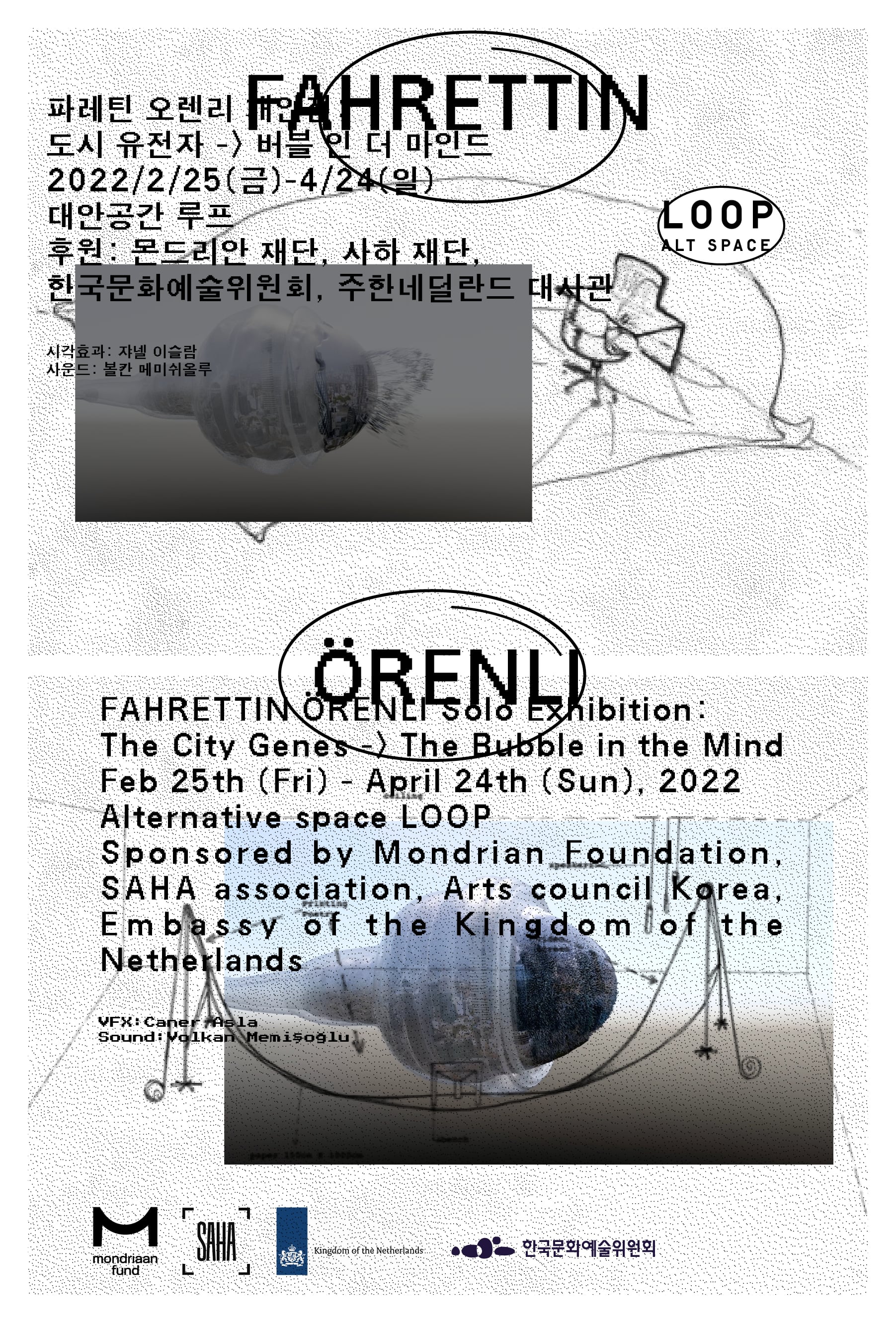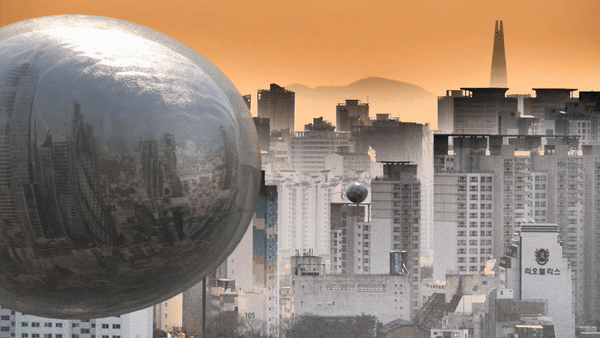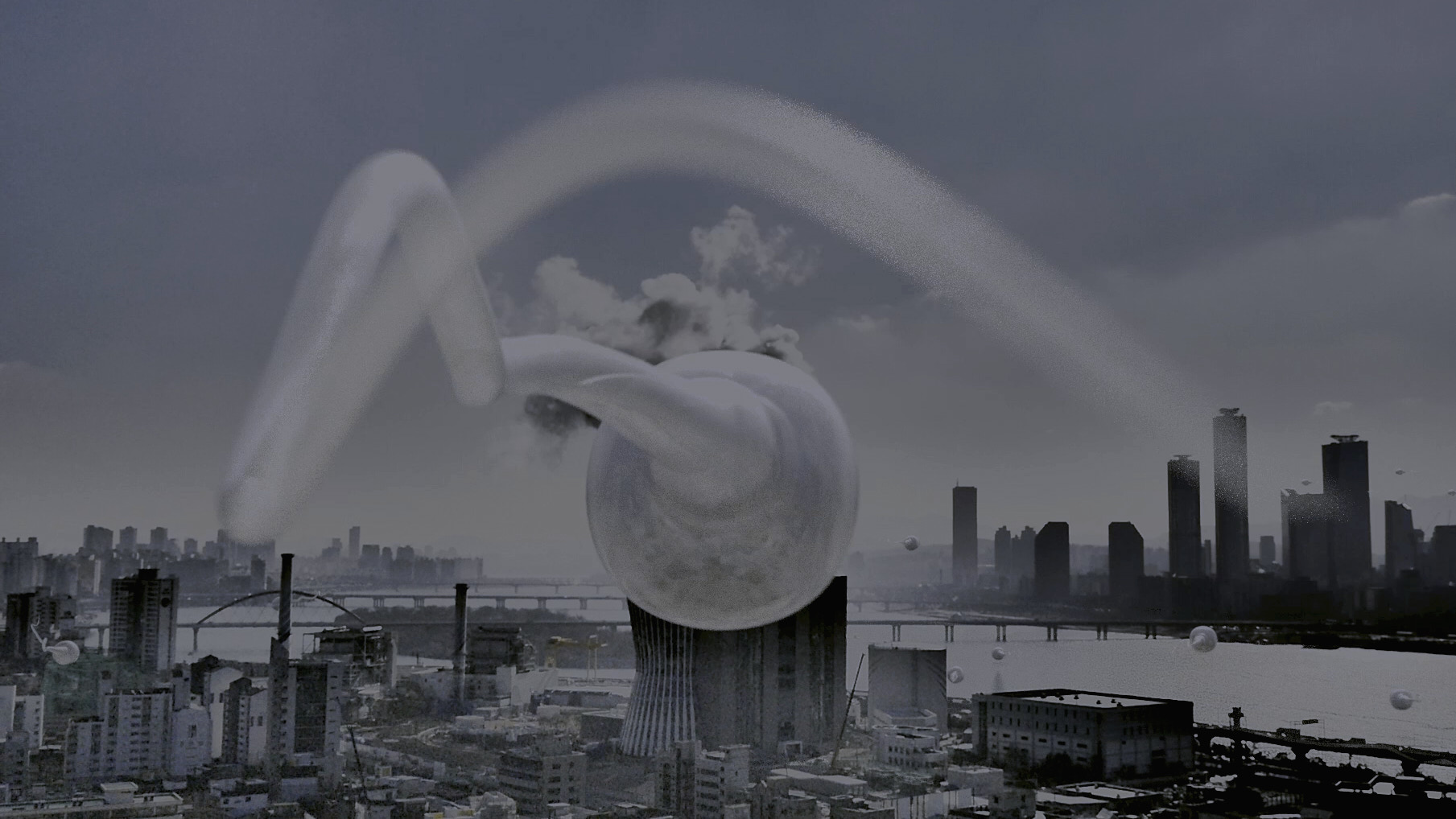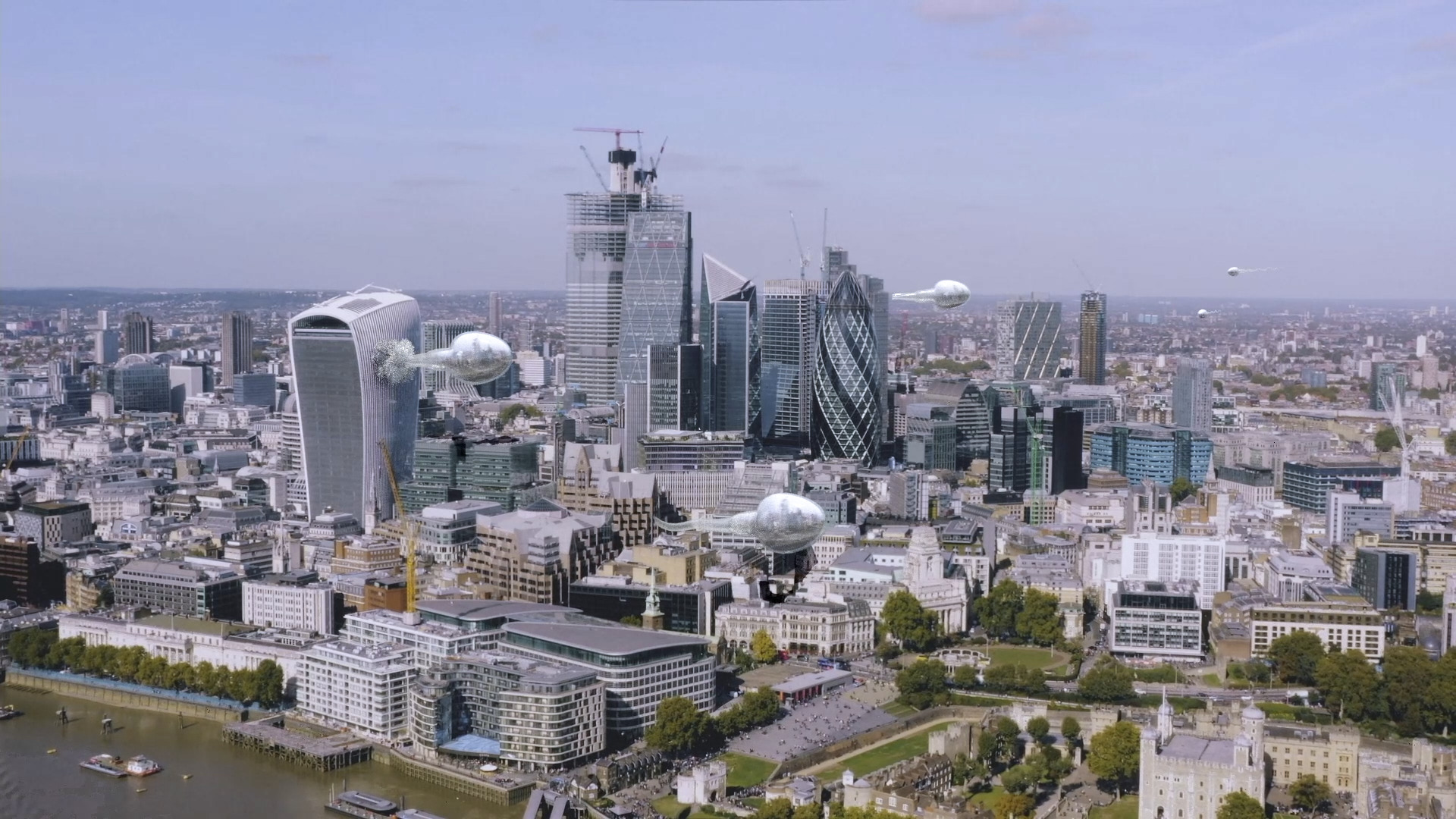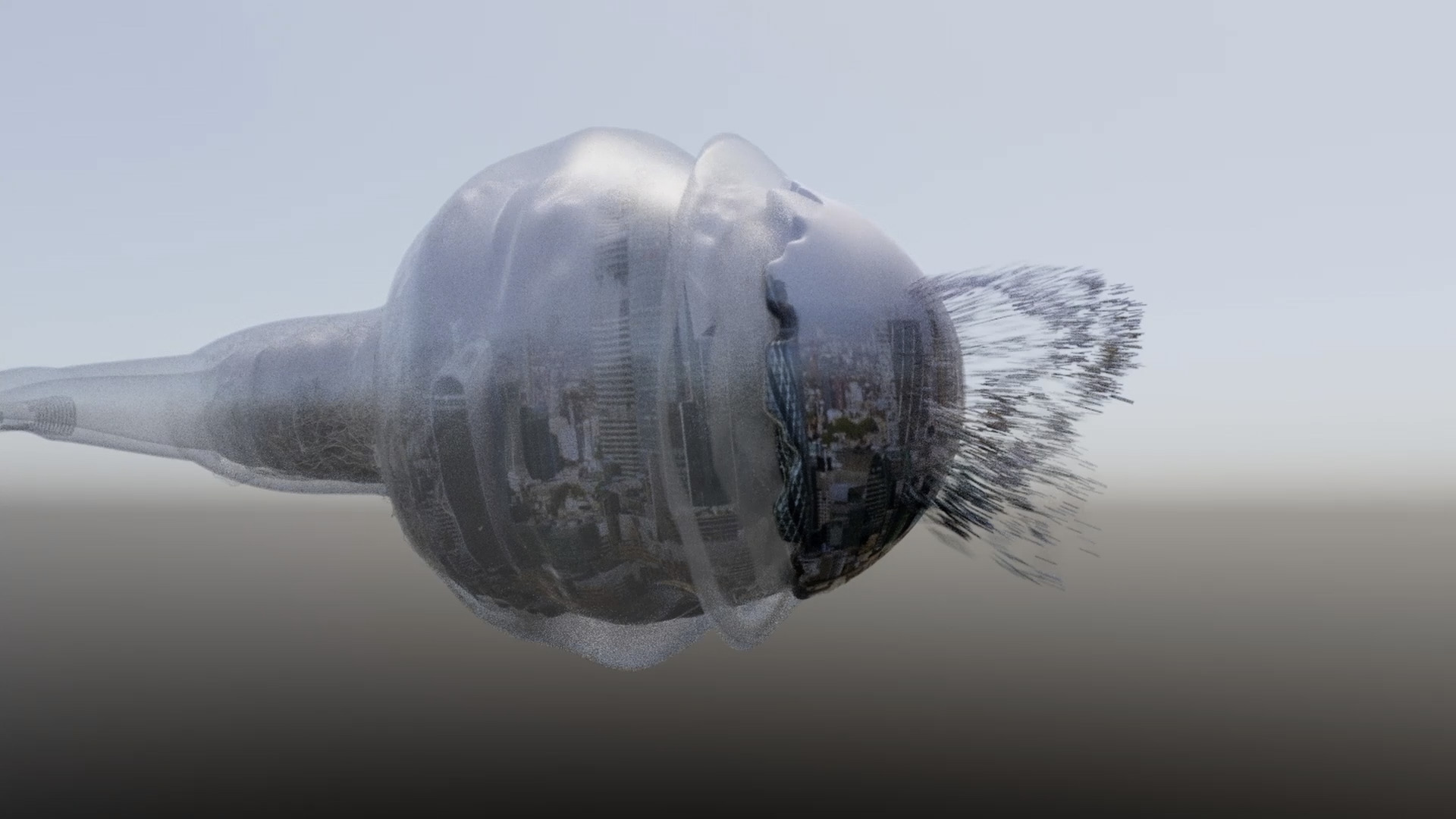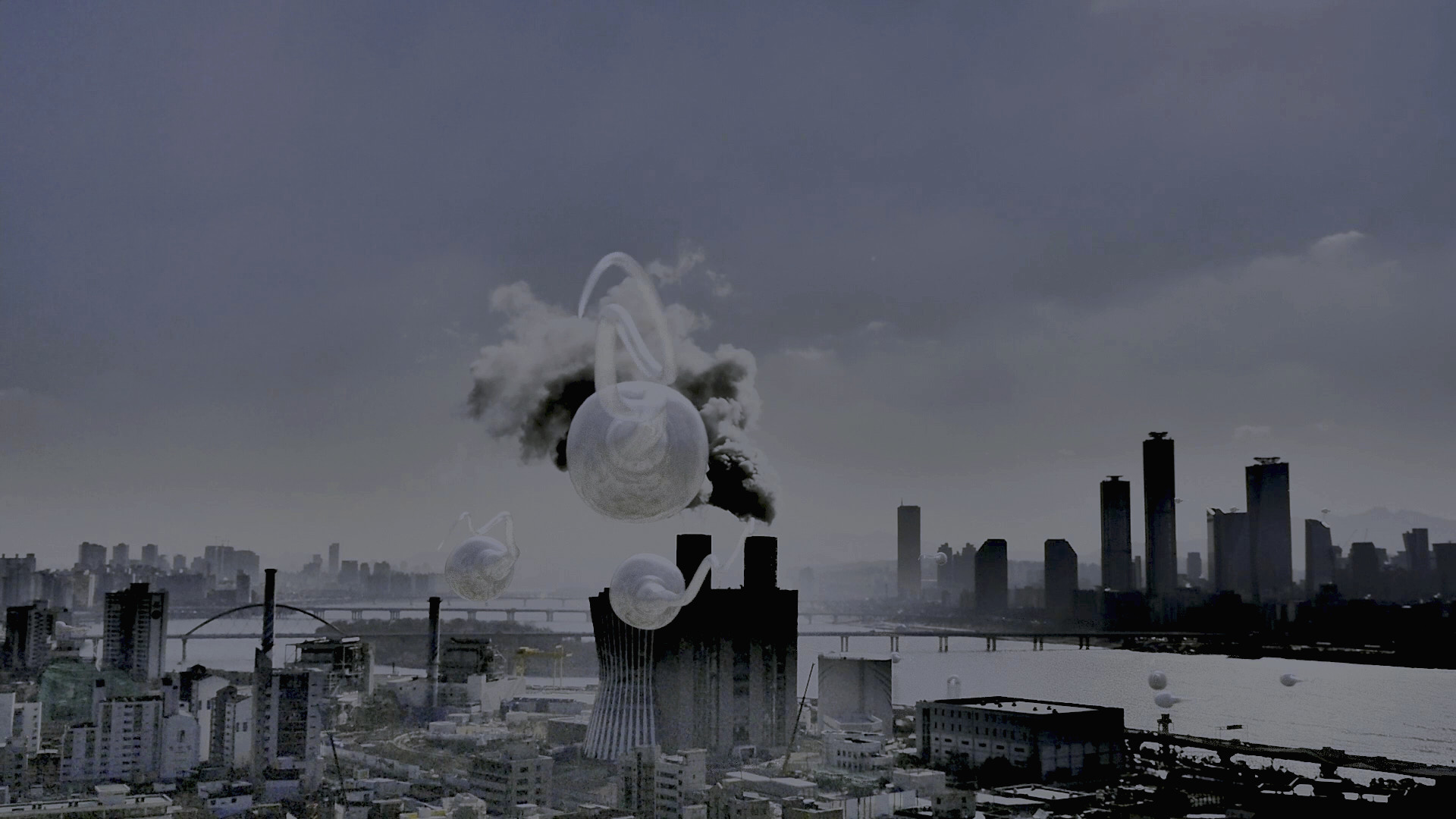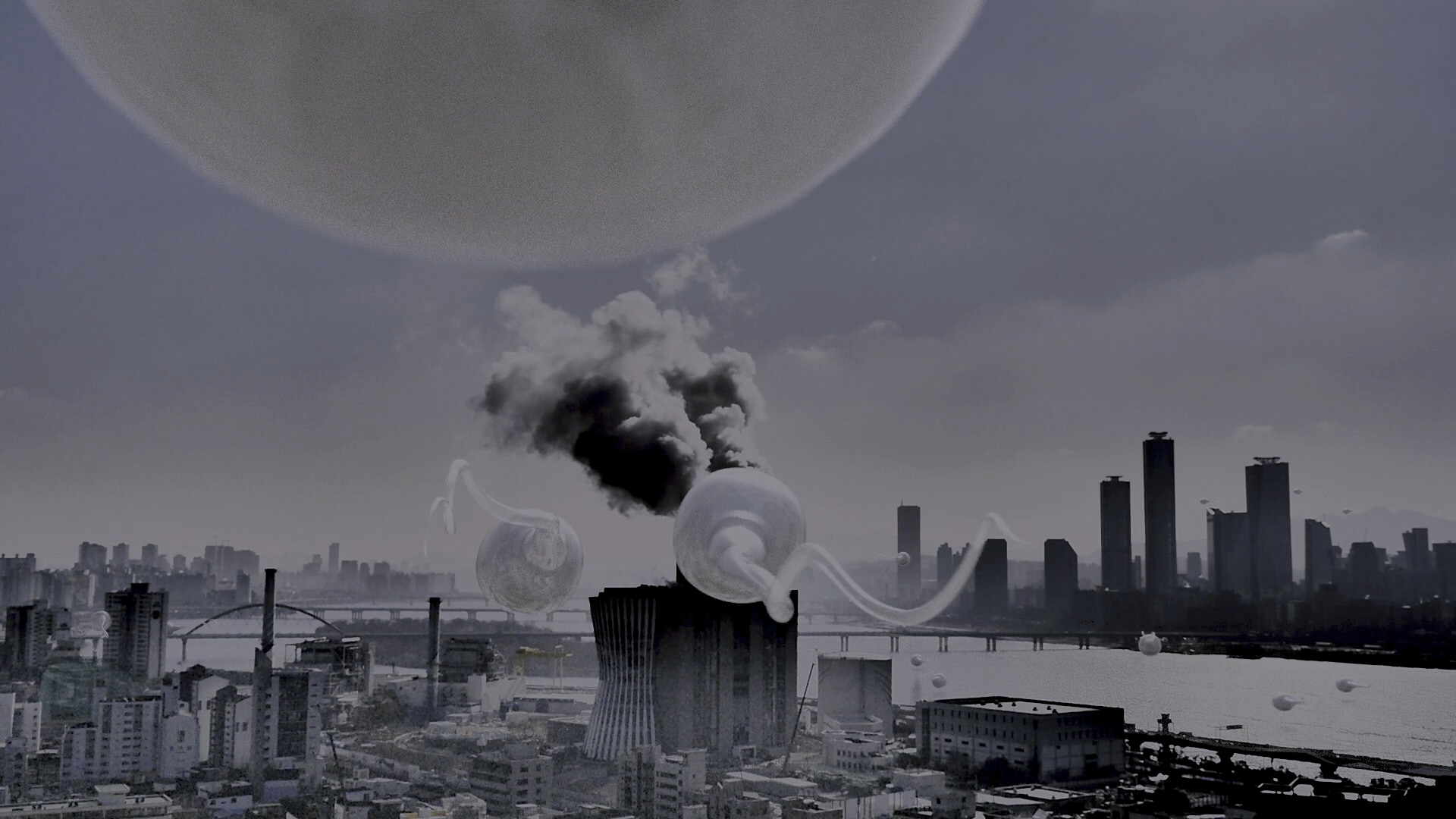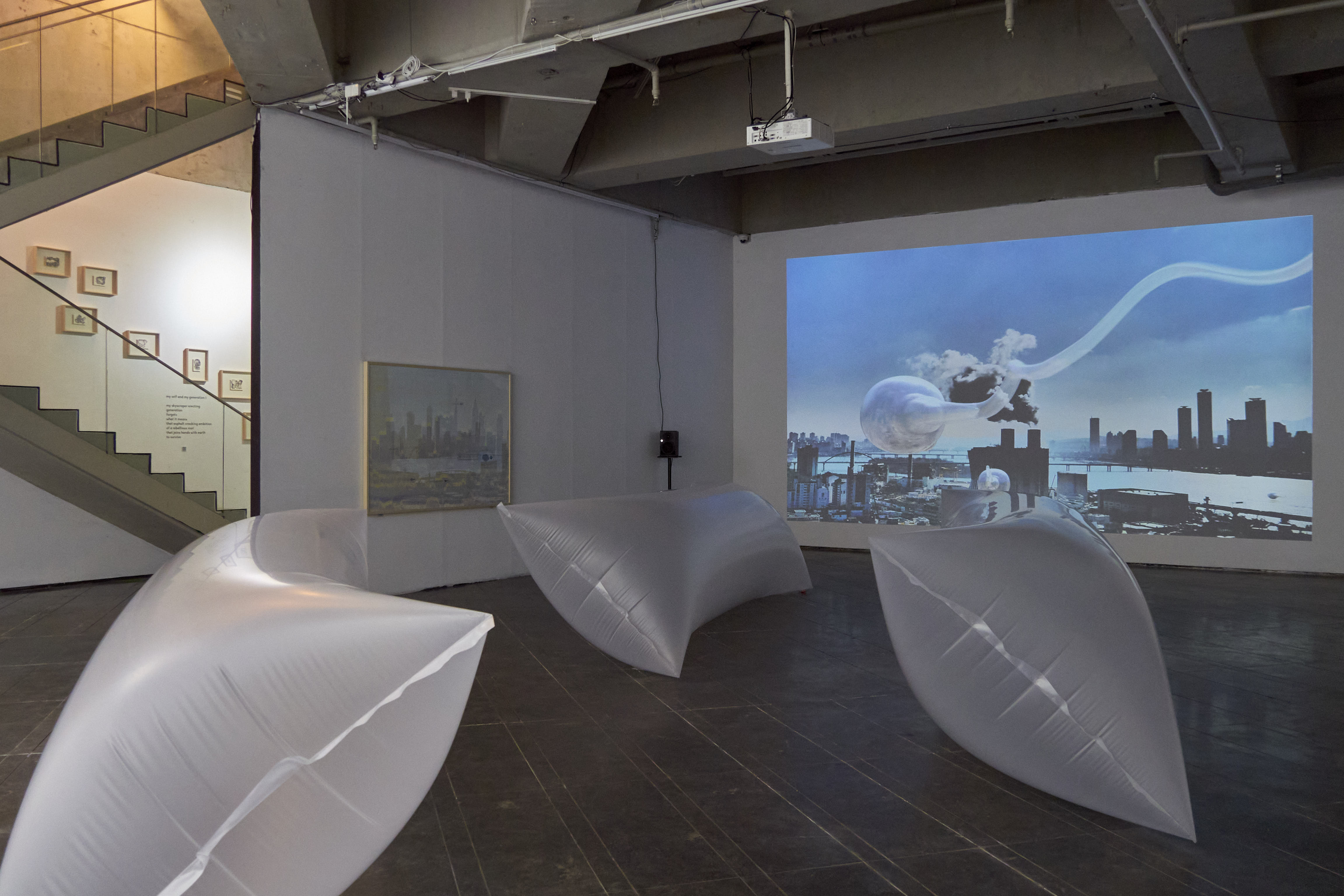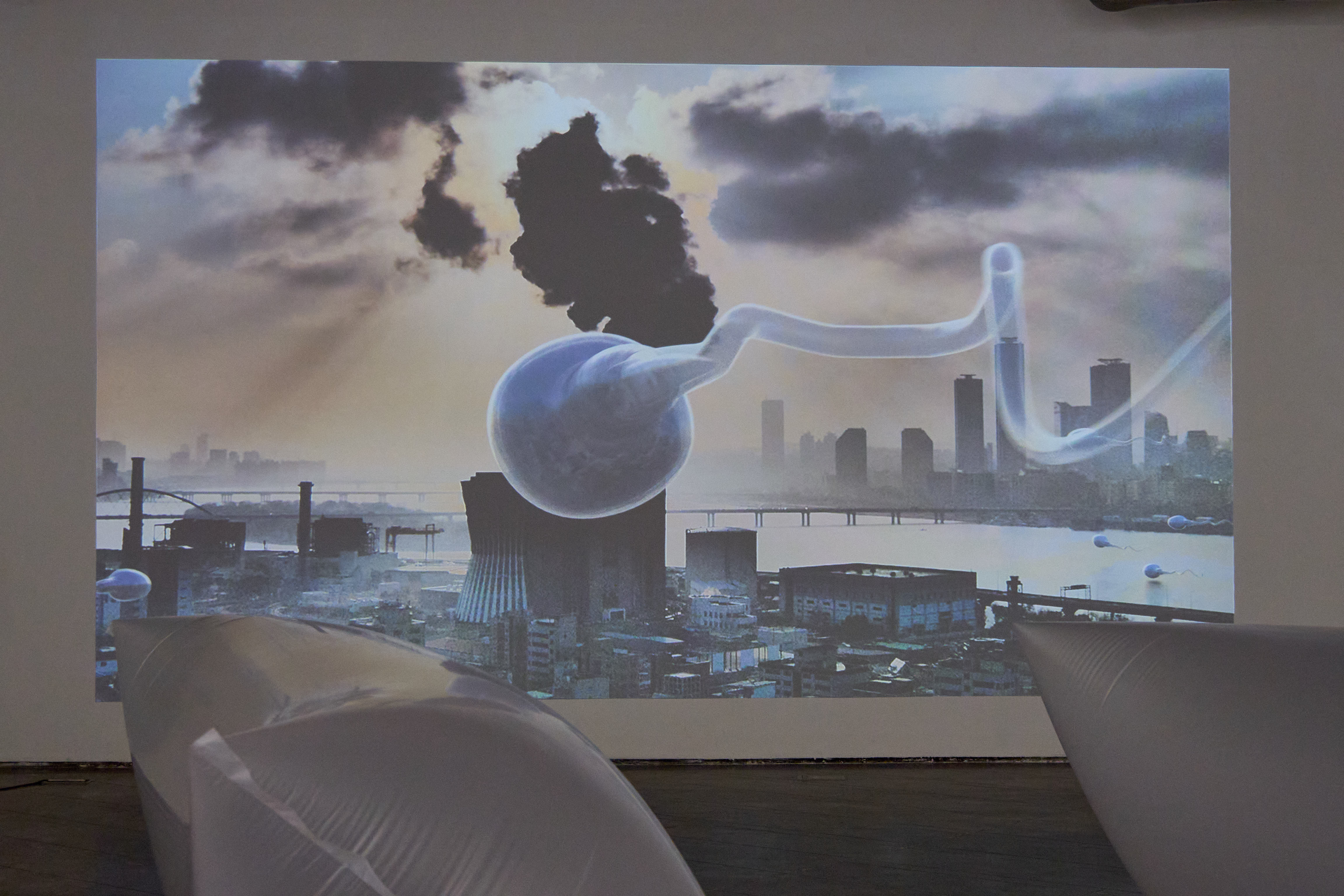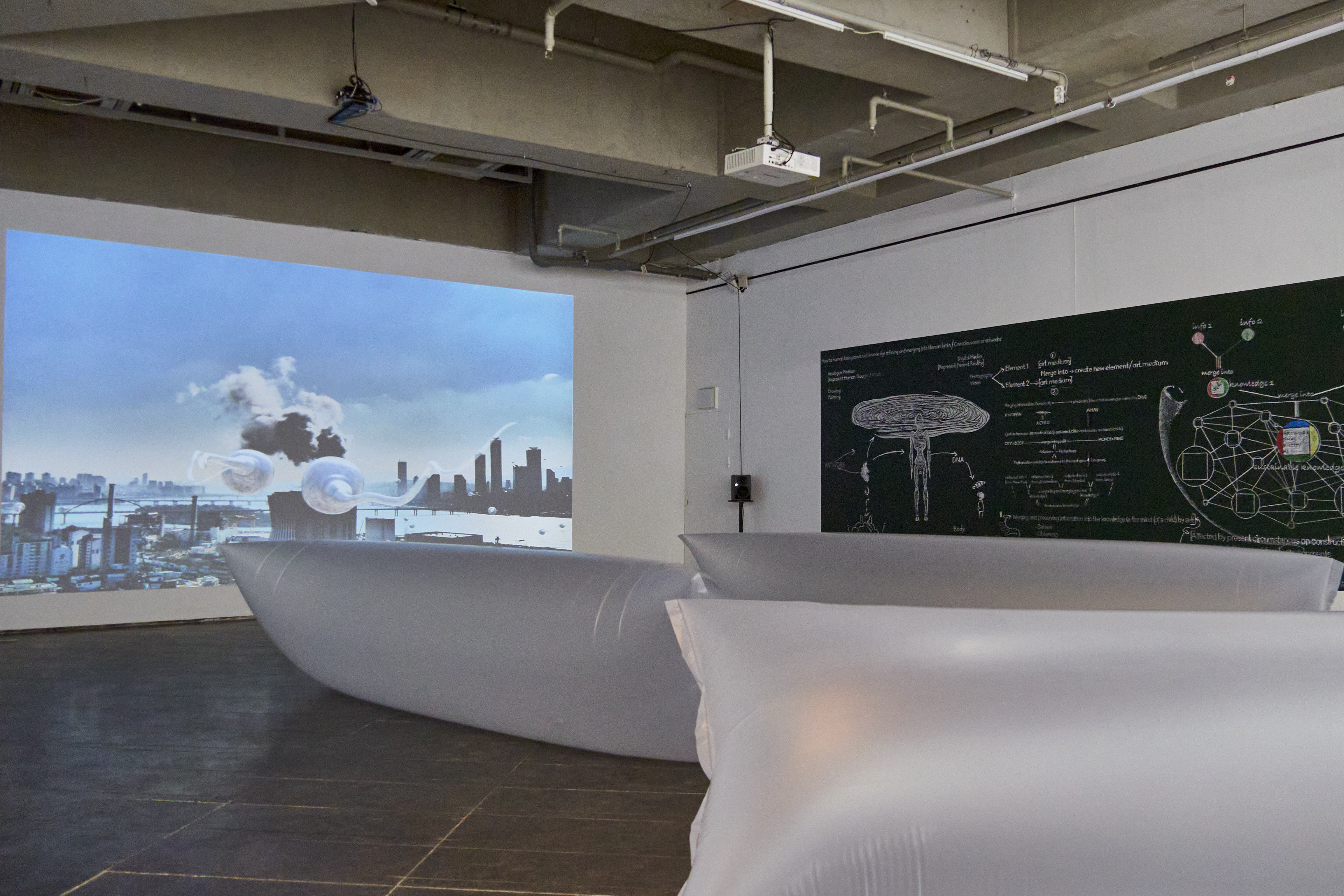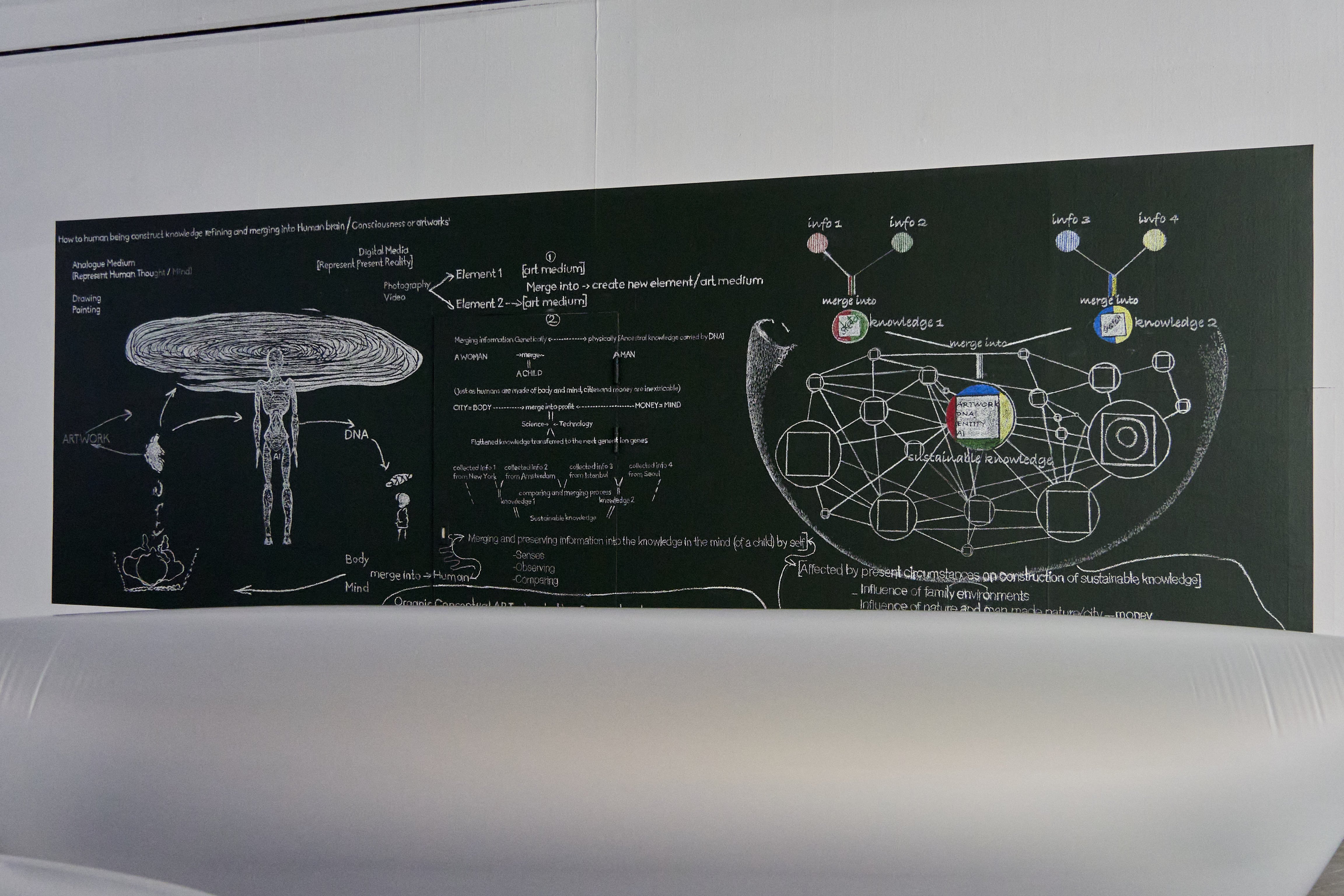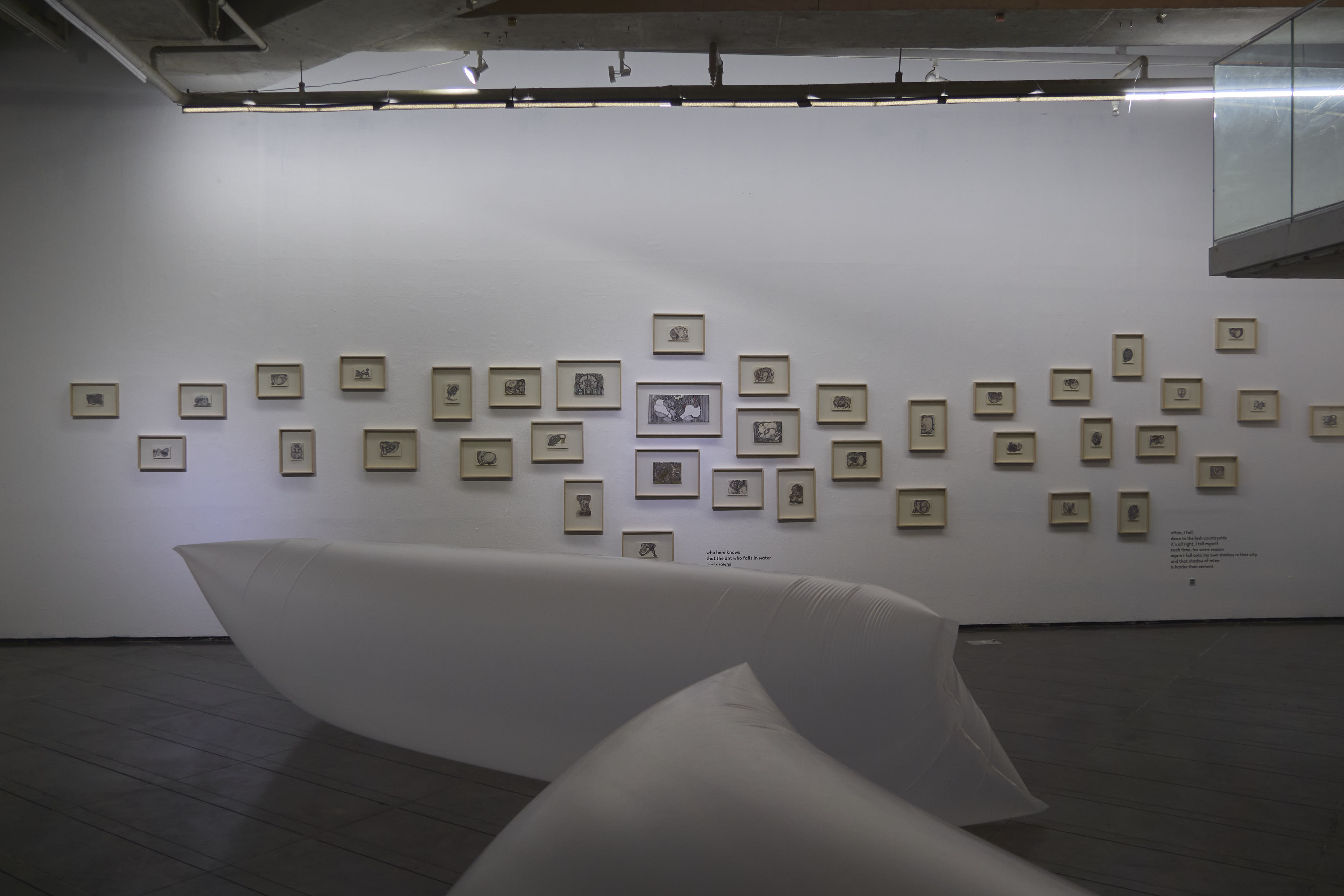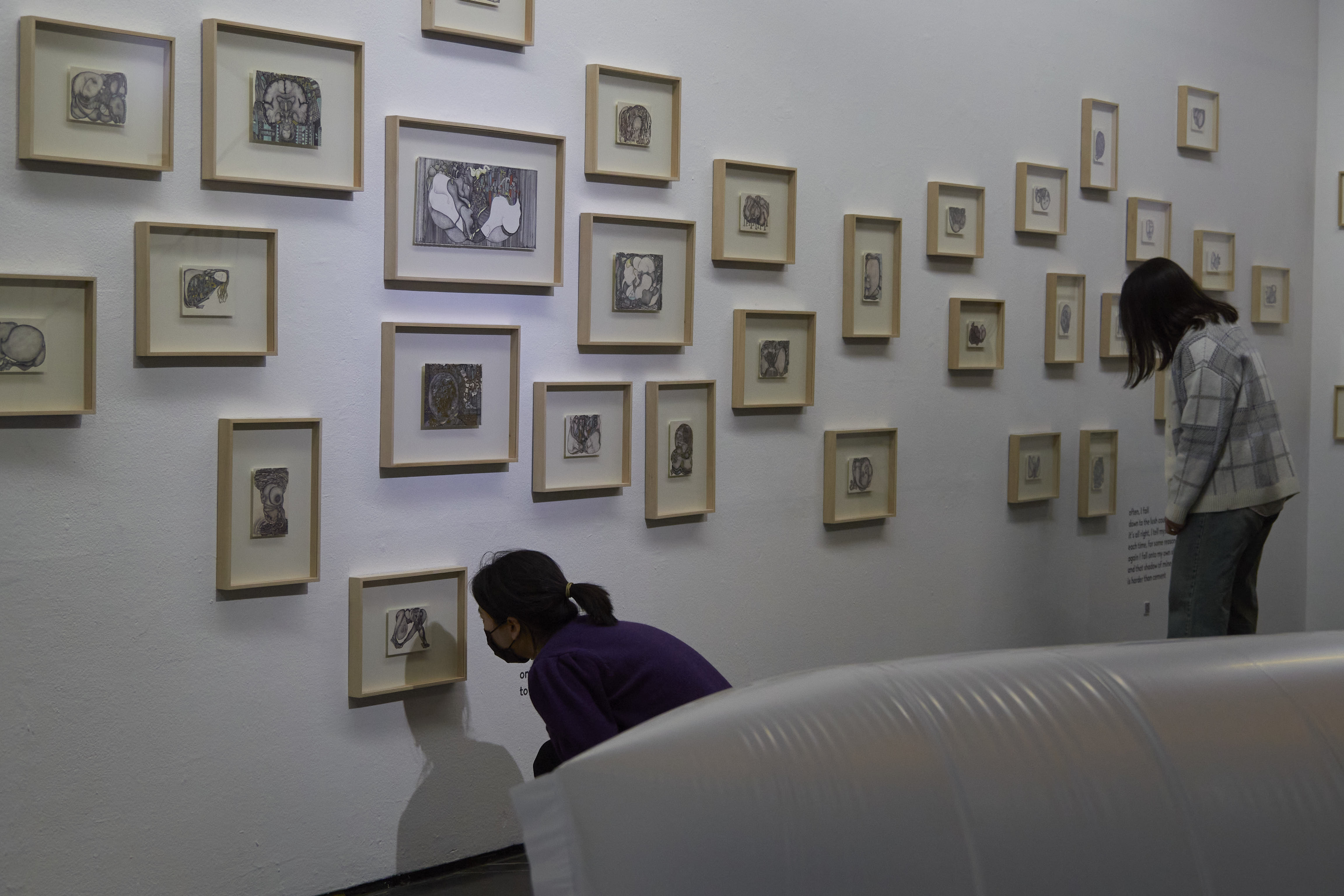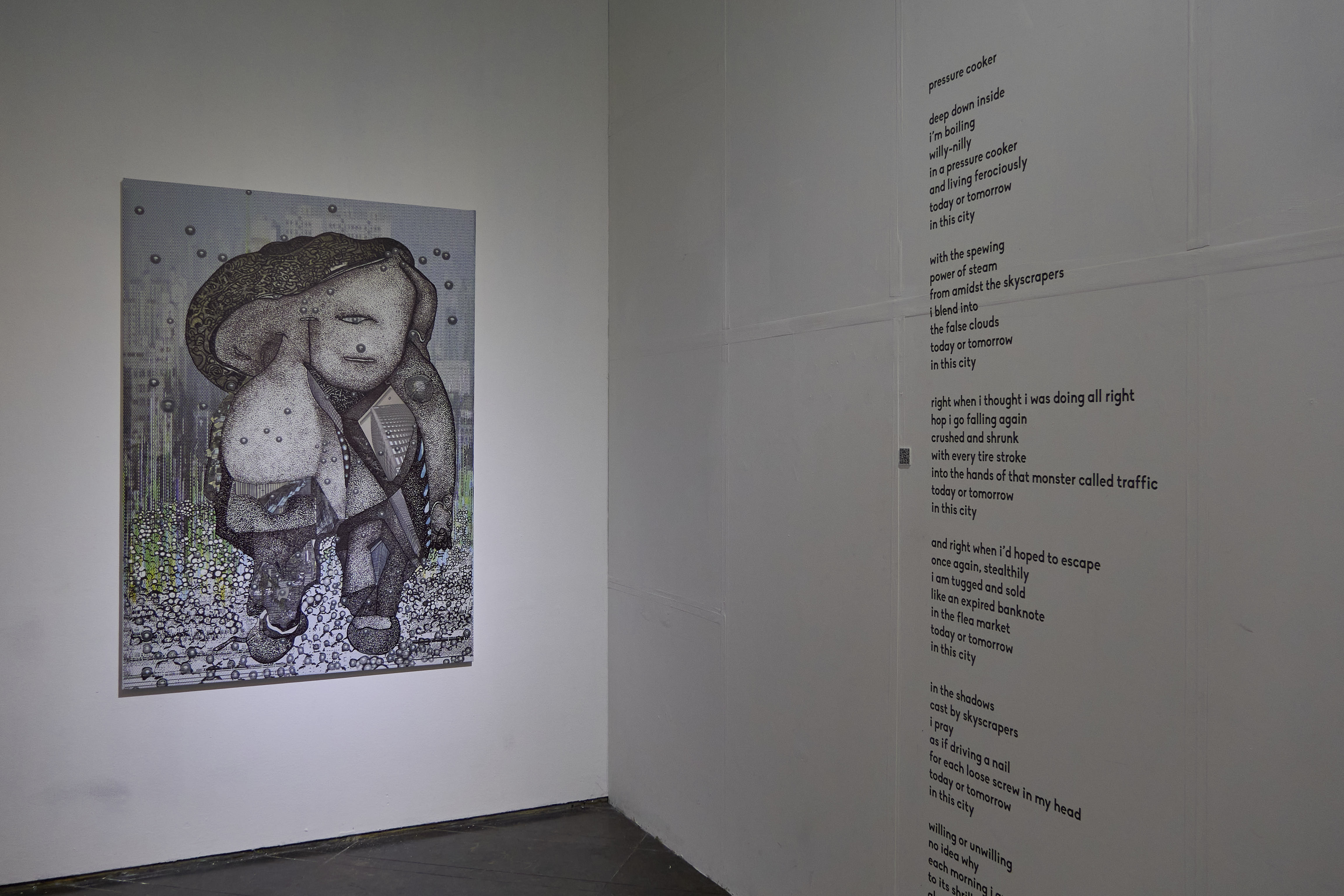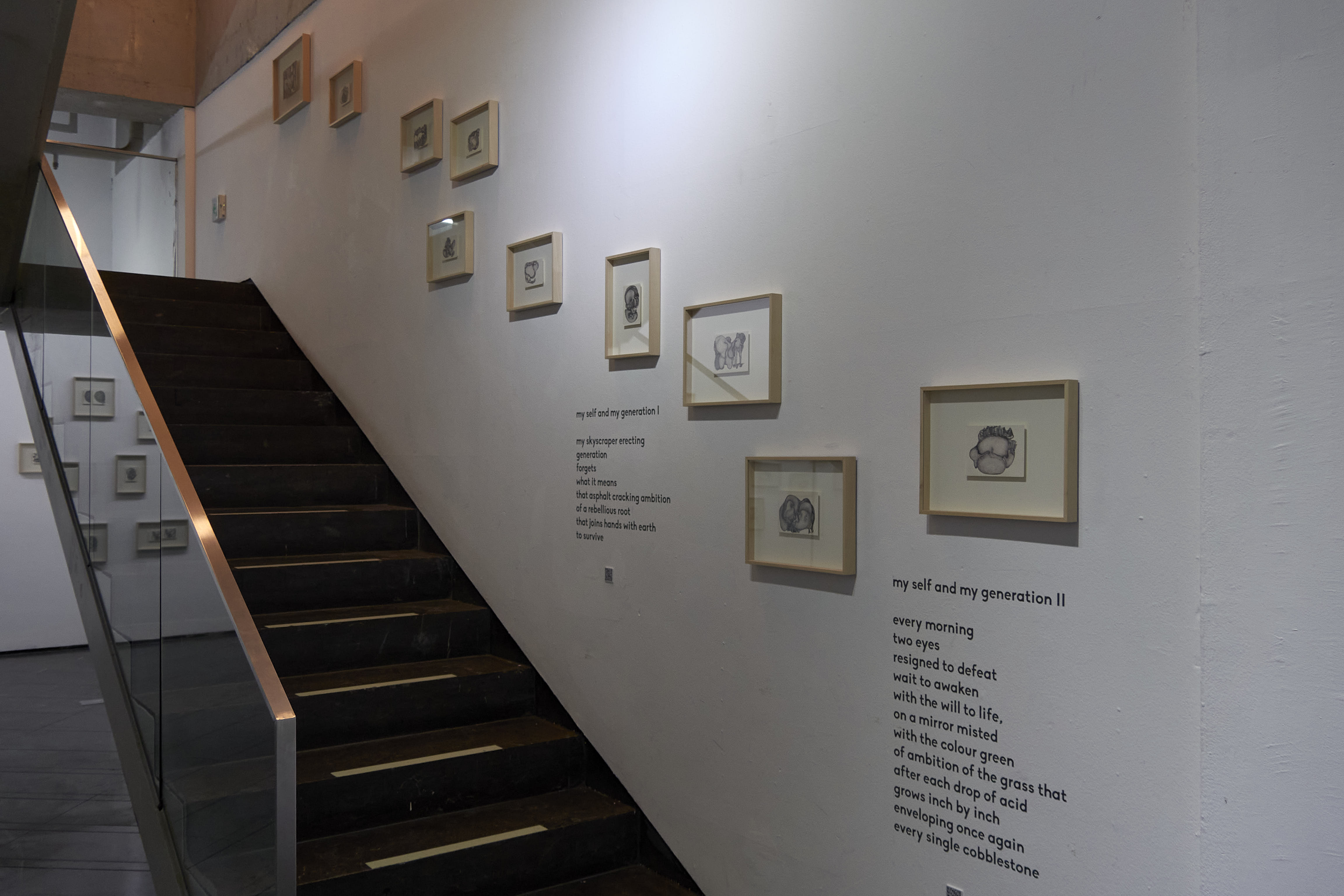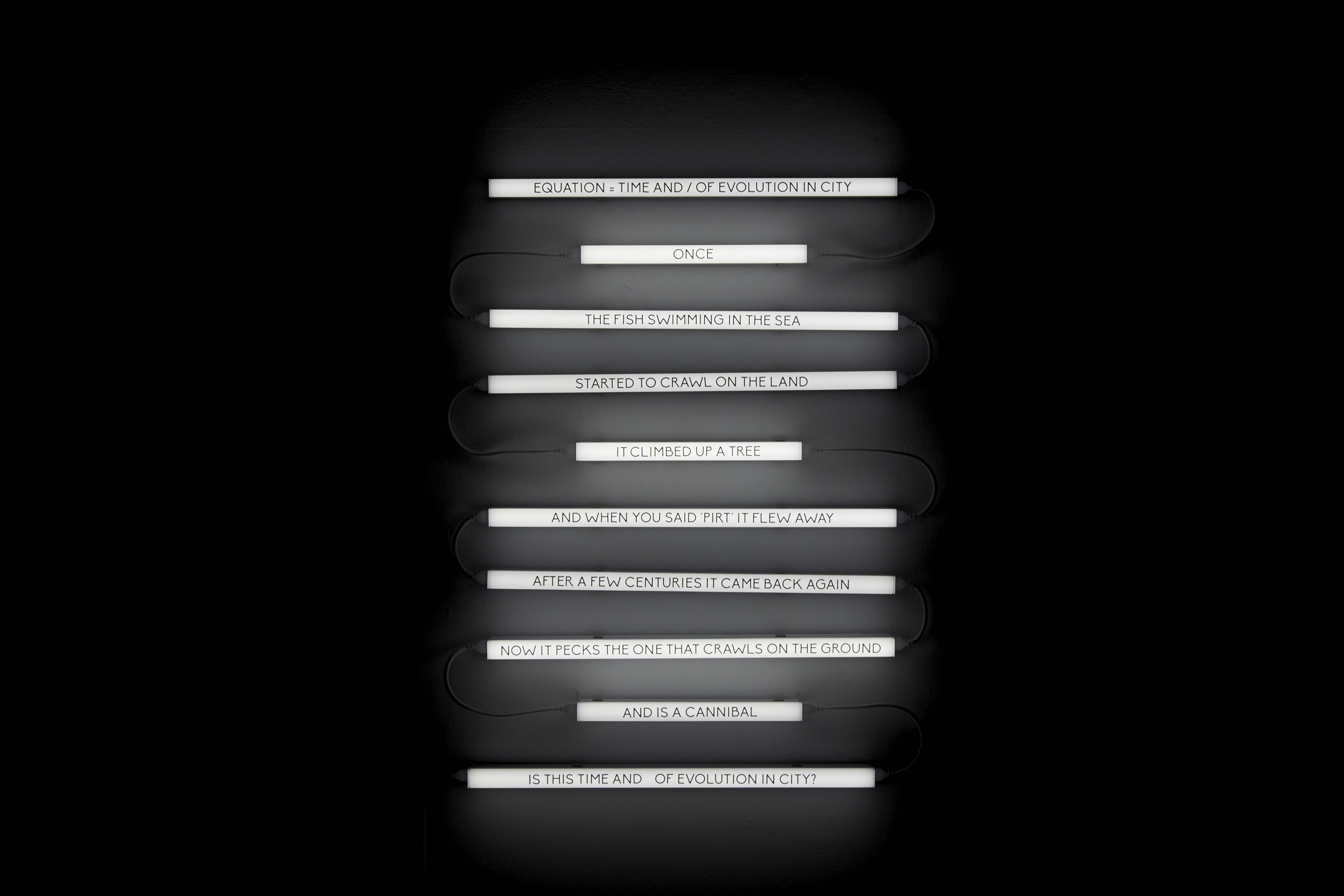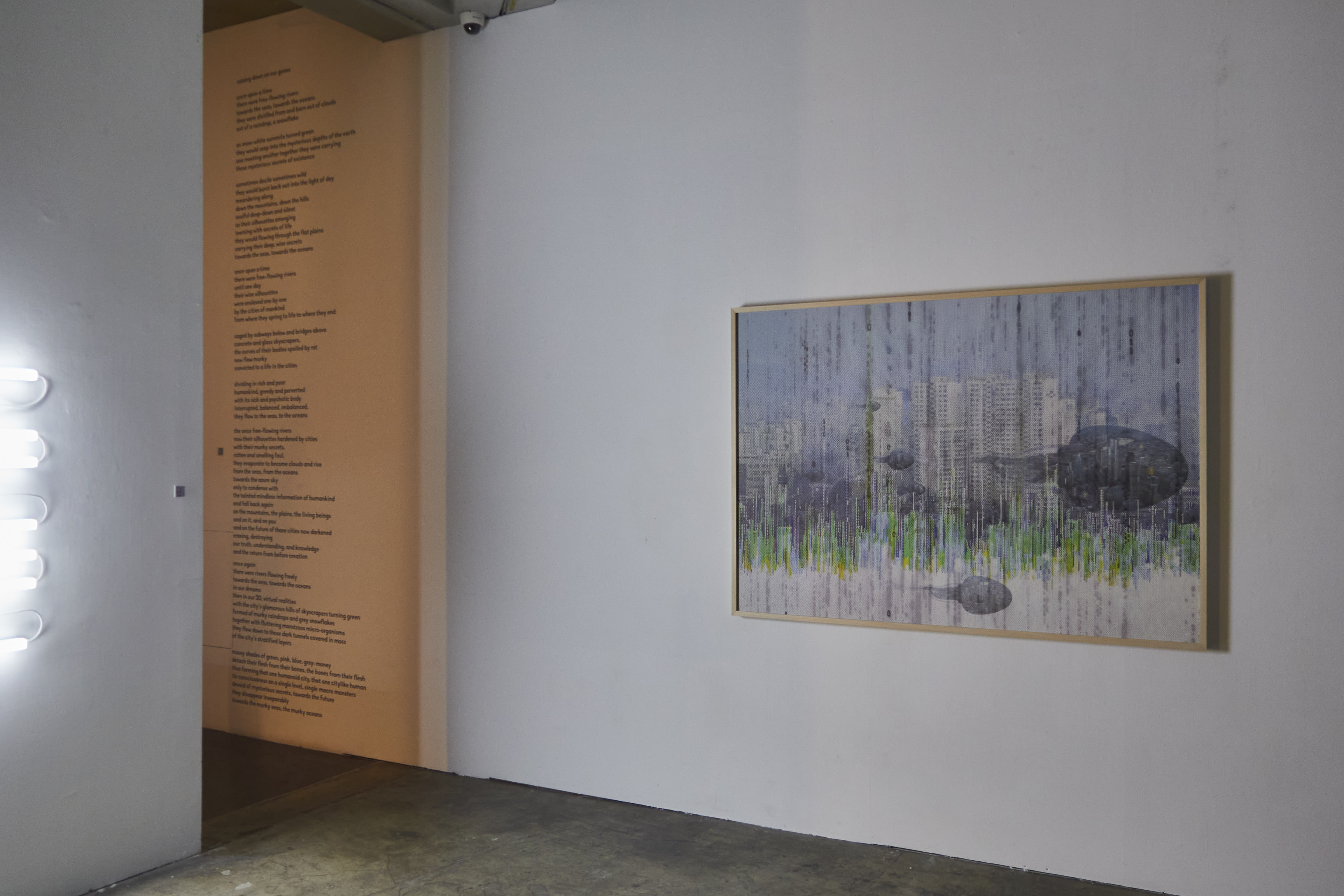The contemporary artist observes and depicts our reality and our world through a unique perspective. By giving visual form to existing social systems in their work, they share their perspective with their audience and their contemporaries. In Organic Cities, Fahrettin Örenli explored the flow of capital in our globalized world through drawings. He took as his starting point both the natural environment of eastern Turkey, where he was born and raised, and the heavy political and economic issues pervading the region. Upon later moving to Amsterdam, he came to defined himself as someone living between two cultures and as an “anartist” (an artist who practices the values of anarchism). The intersections of the two races and cultures he inhabits play a key role in his art.
Örenli’s practice has developed alongside a methodology of scientific research. Collating materials across various media, he analyzes, researches, and then combines them to create a language particular to his art. He studies the ways humankind intervenes in the world, makes maps that detail the points of connection between everyday life and global systems, and incorporates drawings to construct new realities.
Örenli himself describes his process so far as comprising four stages. In the first stage, he began by “observing” the natural world through understanding, and experimenting with nature as a medium of art. The fact that humans and artists can make unique “new creations” means these processes are akin to the generative processes of the natural world and that humans and artists have a certain proximity to understanding how life emerges. The second stage focused on observing, comparing, and questioning the beginning stage of life, childhood, as well as human memory. How histories of our families and ancestors, our modes of life and growing environments, and social and natural histories have shaped us and continue to do so was explored. In the third stage, he researched two topics, namely what impacts social, political, economic issues have on the present and what futures they delineate, and, secondly, the sociocultural development of our times and the value of art and artists. This research culminated in the publishing project conspiracy wall › ANARTIST (2004-2014), which visualizes the processes by which capital became a pervasive power following the 2008 financial crisis and the influence it continues to wield. And now, in the fourth stage, Örenli is conducting research into the impact and influence of capital and cities on knowledge construction, as well as into science and technology and knowledge consciousness.
Poetry, drawings, 3D animations all play a part in City Genes → Bubble in the Mind, an exhibition that stems from the artist’s fourth research project. The series of drawings in The Organic Cities [made up of ‘us’] are of a third being, a hybrid of cities and humans, and an experiment in viewing the city as an organism. These beings crowd the narrow space of the square canvas and are entangled in a thicket of subtle dots and lines. Örenli has lived across continents in New York City, Amsterdam, Istanbul, and Seoul, and observed the changes these cities have undergone. In the new video work, The Gene of Cities, sperm depart from London and travel via Amsterdam to arrive in Seoul, where they burst forth. As the major wins many of the financial companies that moved to Amsterdam post-Brexit achieved in 2021 demonstrate, the work draws parallels between the flow of capital and the patriarchal banding together around these movements. While our days and regular activities, it seems, are sealed, perhaps imprisoned, as in the plastic bags, bubbles, floating in the exhibition space.
There is an argument summed up by the term ‘the Netherlands fallacy’, which states that western European countries give the impression that they are more environmentally friendly only because they have handed off or outsourced the negative byproducts of capitalist economic development, from resources mining to waste processing, to the Global South. Örenli studies the social systems of patriarchal colonialism still in operation today and reveals the errors it conceals through his art practice. His work proposes that amid these suffocatingly prevalent forms of coercion, we dissect the current system scientifically, then imagine a society to succeed this one, together.
Written by Ji Yoon Yang
Director, Alternative Space LOOP
Translated by Emily Yaewon Lee
Fahrettin Örenli(b.1969)
Fahrettin Örenli lives and works in Amsterdam, Istanbul, and Seoul. Örenli’s artistic practices focus on collecting elements from different media and then shifting, separating, investigating, and ultimately recombining them to create a unique language. He studied at Gerrit Rietveld Academie and Rijksakademie Van Beeldende Kunsten, Netherlands. Örenli’s solo exhibitions include ‘High Heels’ (DEPO, Istanbul, 2016), ‘Money without Nationality’ (Art Sonje Center, Seoul, 2017 & Pi Artworks, London, 2018), ‘3D SUNSET’ (Project Fulfill Art Space, Taipei, 2018). He has participated in numerous group shows, including ‘The Revolution Will Not Be Televised’ (ARKO Art Center, Seoul, 2018), ‘The State of Transparency’ (Looiersgracht 60, Amsterdam, 2019), ‘Noncomformity’ (Muse Contemporary Gallery, Istanbul, 2021). Örenli was awarded the Royal Painting Prize(Amsterdam, 2000) and the ABN AMRO Art Prize(Amsterdam, 2004).

